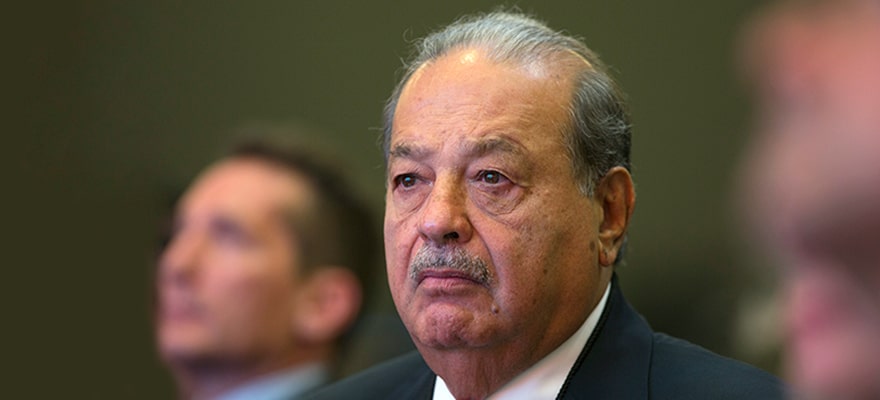It’s been a tough year for Carlos Slim’s América Móvil. Heck, it’s been a rough five years for the Mexico-based telecommunications conglomerate. With rising competition, government regulations and a breakup of a decades-long relationship with AT&T putting the squeeze on the company, it’s struggled to stay relevant as an investment — shares are down 22% on the year and 40% over the last five years.
The struggles culminated in América Móvil’s third quarter results, which represented the company’s first quarterly loss in 14 years:
- Revenues were up 1.2% to 223.6 billion pesos ($13.55 billion), missing expectations of 224.58 billion pesos ($13.61 billion).
- Earnings came in at a loss of 2.884 billion pesos ($170 million), compared with a gain of 10.376 billion pesos ($611 million) in Q3 2014.
- Analysts had forecast a profit of 9.493 billion pesos ($560 million).
- Foreign Exchange loss rose to 45.1 billion pesos ($2.7 billion), a major increase over 8.97 billion pesos ($528 million) a year ago.
What’s to blame?
For the current issue at hand, there’s not much América Móvil could have done to change it. The Mexican peso and the Brazilian real both suffered large depreciations against the U.S. dollar. If those currencies continue to founder against the dollar, it’s difficult to see how América Móvil can counteract the bleeding.
Currency exchange isn’t the only thing testing the telecommunications company, though. With government regulations forcing América Móvil to allow more competition in Mexico, that competition has come swiftly from the likes of AT&T, with which América Móvil had a partnership for around 30 years, and Telefonica.
In response, Carlos Slim complained about being forced to subsidize his rivals and argues that his company should be granted a pay-TV license to counterbalance the competitive heat that it's feeling in the telecom space.
What they’re doing about it
The good thing the regulations did, however, was force América Móvil to improve its offering. For example, in July the company launched Sin Fronteras (without borders), a phone plan that allows Mexican subscribers to call the United States with no long distance fee, as well as use their cell phone in the U.S. with no roaming or long distance charges. Not bad for a company that previously did whatever it wanted and could reasonably expect subscribers to have no other choice.
The company management is also looking into its capital expenditures to find areas to cut and to renegotiate with suppliers to help reduce the exposure to currency fluctuations.
"I'm sure the capex in dollars (in 2016) is going to be less than what we had," CEO Daniel Hajj told analysts in a conference call. The company's planned 2015 capital expenditures were $10 billion, he said.
Can they do it?
The last few years have been nothing but an uphill battle for Carlos Slim and América Móvil. Don’t expect the next five years to be any different. For a company that has held a monopoly in its home country for more than a decade, it’s going to take a while for it to learn to compete with formidable competitors. As the currency situation is more difficult to predict, you’re best staying away for now.


















